Nikole Hannah-Jones answered my question about fear and Black storytelling
By Rafiq TaylorPhoto by Steve Cohn
I had a burning question.
One that I keep hearing asked over and over again. A question that sits in the mind and is always entangled amongst the sickening details that make up the specter of injustice. A question about fear.
History has become a hobby horse for me, and in my extracurricular study of times before, there’s one pattern I tend to see that has remained consistent for every bloody conflict I’ve studied: the residue of a struggle between those who get funerals and those who lie in unmarked graves. The conversation about that is always a terrifying, perilous journey. It lingers like the scent of a banana peel in a school kid’s backpack. Nikole Hannah-Jones has opened every stinky backpack because someone must. Frankly, I don’t know how she does it.
I volunteered to ask her a question hinting at this in a packed auditorium at the Charlotta Bass Journalism & Justice Lab’s Media Trailblazer Speaker Series. Here is the question: “What role do you think fear plays in the public’s response to your work? What would you say to someone who’s afraid of the past?” I think this question operates in two very different realms, and maybe that was part of why I was so curious to hear her answer to this.
Photos by Steve Cohn
In one realm, it speaks about public fear and its general integration inside the machinery of how the story of the US has traditionally been taught. Fear by omission, responding violently to the unveiling of harsh historical realities. The other realm is the one I inhabit. The desire to look away from the hanged body. The fear of intimacy with lived horror.
Reflecting on the answer I received, both realms were addressed. When speaking on public fear, she noted how the Founding Fathers were slave owners and how that represents a national shame that must be accounted for. This, I understood. All these years later, despite repetitive calls for equity and reparations, there is still a federal, public fear of what that future looks like. Fear of populations no longer slighted by insidious supremacist philosophy. Fear of revolt: the origin and every sequel of this nation’s story.
The second answer wasn’t explicit, but I could sense it in her candor. Her answer is to face the horror. To dissect it. To adjudicate with righteousness. My question was gasoline, and the answer was the match and the flame. It was not the response I was expecting, but I also didn’t know what to expect. It was a really electrifying moment, and I’m inspired by the example Nikole Hannah-Jones sets for truthtellers everywhere.
I’ll give you two takeaways from my moment sharing the spotlight that night: Always ask the question that scares you, and always answer fearful questions with phoenix fire.
Rafiq Taylor is a public relations and advertising master’s student at USC’s Annenberg School. He is an inaugural Charlotta Bass Fellow and an avid podcaster.




